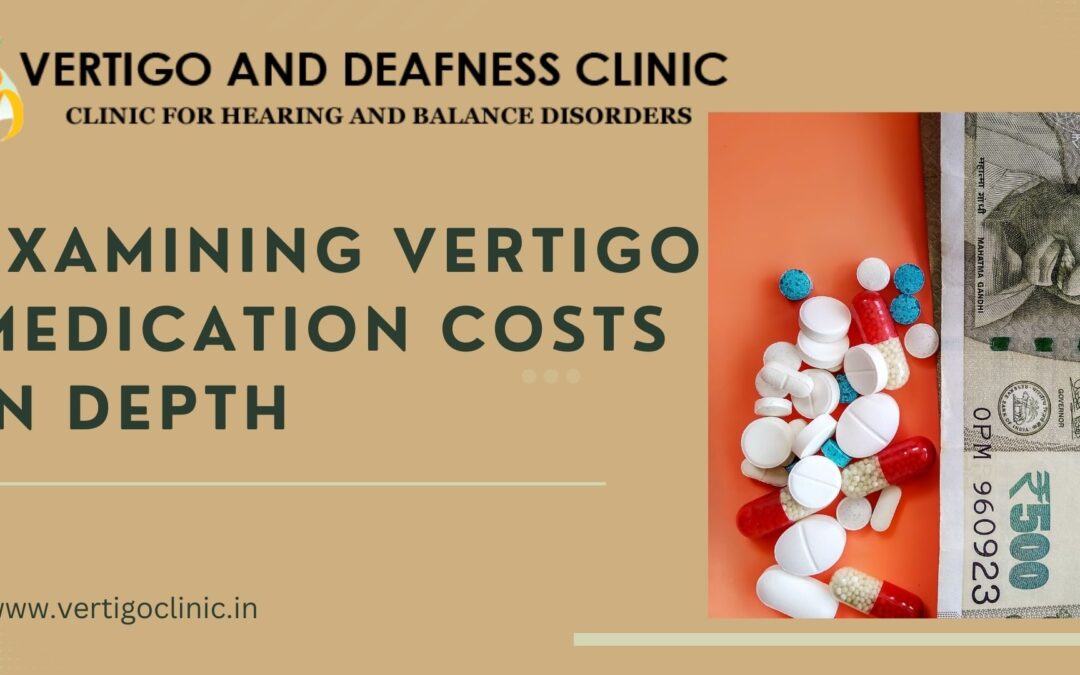Vertigo Medication Costs
Vertigo, a condition causing dizziness and a sensation of spinning, can be very challenging for those it affects. Medications are crucial for many people dealing with vertigo, but their cost raises concerns. In this article, we’ll examine all the factors influencing these costs, including details from the pharmaceutical industry, regulatory processes, market conditions, and how they affect the prices of vertigo medications.
1. Research and Development Costs
The journey to bring vertigo medication onto the market can be long and expensive, beginning with extensive research to understand its root causes and possible treatments. As soon as this stage has been completed, clinical tests begin – costing pharmaceutical firms both money and time resources in terms of resources needed to conduct them effectively – in order to test safety and efficacy. These trials must demonstrate these aspects. As expenses from research and development must be paid back with rates which leads to an increase in vertigo drug costs overall.
2. Regulatory Needs: Protecting Patient Health
Pharmaceutical firms take patient safety and effectiveness very seriously. Regulatory authorities such as the Food and Drug Administration in the US impose stringent guidelines and requirements that pharmaceutical firms must abide by; in turn, doing so involves significant financial investments for study, screening and documentation – further increasing costs associated with medicine development.
3. Limited Market Dimension: An Obstacle to Addressing Rare Issues
Vertigo is considered an uncommon condition. Therefore, pharmaceutical businesses might set higher rates to compensate for its limited consumer base as sales may be expected less frequently compared with medicines targeting more widespread health and wellness issues.
4. Ongoing Research, Study, and Renovation: Dedication to Quality
Even once a drug hits the market, research and development initiatives continue to optimize its efficiency, safety, and tolerability. These post-market initiatives are essential components of medication advancement; however they often incur incremental expenses which lead to price increases over time.

5. Lack of Generic Options: Branded Vs. Common Drugs
One factor impacting the cost of vertigo medication is a lack of generic alternatives; brand drugs tend to be much more costly than their generic equivalents; generic versions usually appear when an original medication’s license lapses, allowing other pharmaceutical firms to create copies; without these competitors, prices remain high.
6. Insurance Coverage and Gaps: The Goal of Health Program
Health insurance plans are different, and some may not pay for all the costs of vertigo drugs. This means you might have to pay more yourself or share the costs with your family. Diverse coverage can mean more expenses for you and your family.
7. Expertise and Tailored Therapy
Medicines made for conditions like vertigo are special because they are not produced in large quantities, and it costs more to make each one. This makes the drugs more expensive overall.
** Last Thought: Navigating Vertigo Medicine Prices
Recognizing the intricacies of vertigo medication expenses is key for both clients and doctors alike. Medicine costs depend on various factors like research, rules, and special treatments. It’s important to discuss financial help options with your doctor. Stabilizing the search for effective vertigo treatment while taking economic considerations into account is a complex endeavor. Clients should consult healthcare providers and pharmacists for cost-effective vertigo management without harming their financial security. Vertigo medication costs are complex issues arising from pharmaceutical research and development processes, market forces, and healthcare access issues. Understanding vertigo’s complexity enables us to develop solutions and support those affected by it. Making sure they can access care without incurring unnecessary financial strain.
Conclusion
We’ve looked at how much vertigo medicine costs, and it’s a big deal for both doctors and patients. Knowing how expensive it can be to treat vertigo is important for your health and for the healthcare system overall. In this article, we’ve explained all the things that affect the cost of these medicines. To solve this problem, we need to use a comprehensive approach. We can do this by making medicine prices more transparent, supporting research to make treatments cheaper, and improving insurance to help people with vertigo afford their medications. This way, we can create a fair healthcare system where everyone can get the medicine they need without going broke.
Our commitment to studying vertigo medication costs in depth represents our attempt at building such an equitable and accessible system. So those suffering can seek relief without incurring excessively high costs for care.
BootLab is an online lab reporting software designed for seamless and efficient management in pathology labs. As an easy pathology lab software solution, it simplifies complex lab tasks, from generating reports to handling billing and patient data, all in one intuitive system. BootLab is perfect for labs seeking a straightforward yet powerful pathology lab software to enhance their operations.

